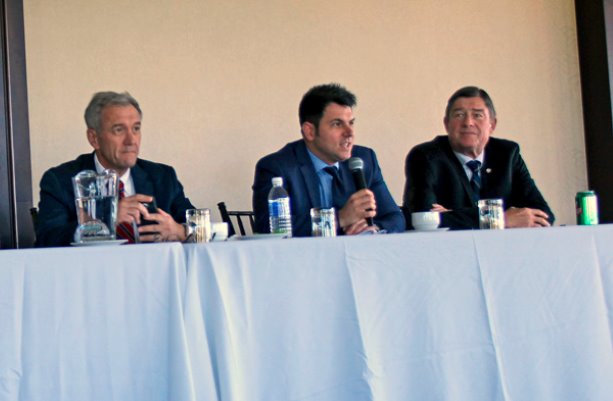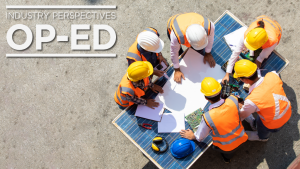With the legalization of marijuana less than a year away, there are still a lot of unanswered questions about how to deal with cannabis on construction project sites.
"Let’s not kid ourselves here folks, we’re all screwed," stated Clive Thurston, president of the Ontario General Contractors Association (OGCA), who was part of a panel at the Cannabis in Construction Symposium held in Maple, Ont. recently. The event was hosted by the Residential Construction Council of Ontario (RESCON) and the OGCA.
He added if anybody gets hurt on a work site it’s always the employer who is blamed.
"We need action, we need support and we need laws and the tools to protect our workers and to protect the public. All I hear is more concern about opening up a store or what is it going to look like," Thurston commented, adding there are no tools to prevent workers from using marijuana whenever and wherever they want.
"Wake up. Quit telling me how you’re going to sell the stuff and tell me how you’re going to protect us.
"If we don’t get those tools, we’re going to be burying people. I’m not an alarmist, but you better believe somebody is going to die."
Richard Lyall, president of RESCON, agreed there are a lot of unanswered questions as well as cause for concern.
"Right now, this is one of those massive shoot first ask questions later situations," said Lyall.
"It’s a complex issue. It has implications that we haven’t discussed yet with respect to benefit plans and how it (marijuana) should be covered."
Christian Paquette, a partner at law firm Fasken Martineau, said the good news is the industry already has some tools to deal with marijuana in the workplace.
"You have been living with marijuana in the workplace for a long time. Those are your baselines and that is how I think you are going to be moving forward as best as you can while we get more clarity from government and from other stakeholders," said Paquette.
"I do think that education is certainly a big important part of the solution.
"Just because alcohol is legal doesn’t mean people are allowed to consume it at work. If you keep those two perspectives in mind I think that remains a good road map on how to deal with legalization of marijuana."
Dr. Melissa Snider-Adler, the chief medical review officer with DriverCheck Inc., a provider of workplace medical testing, said many of the workers she deals with who have substance use disorders are in construction. "There is not a lot of research out there but I have been working in addiction for 18 years. I’ve worked all across the province and it is something I have seen over and over," she said. "You have people in construction who get injured. It’s not a massive workplace injury — their back is sore or their shoulder is sore because they’re working hard — and one of their co-workers says ‘take one of these, it will help with your back’ and they take them and take them again and it becomes problematic."
Employers are entitled to information when it comes to medical treatment, Paquette explained.
"If you have reasonable, legitimate grounds to request that information, and by that I’m not talking about an actual diagnosis, you’re never allowed to ask for that, but you can ask about the general nature of the illness," he said. "You can ask how a person is cognitively impaired or restricted because of their disability and how does it impact their decision making, their judgment, their vision."
Thurston said safety is everyone’s responsibility including employers, workers and unions. He also said it is incumbent on employees to speak up if they feel unsafe. Employers should also be able to remove a worker from a project site who they believe poses a risk but there is always that fear of being sued.
"How do we change this culture? How do we make things safer? How do we get everybody to the table and make things different?" Thurston asked. "When you see something, say something, do something about it."







Recent Comments
comments for this post are closed